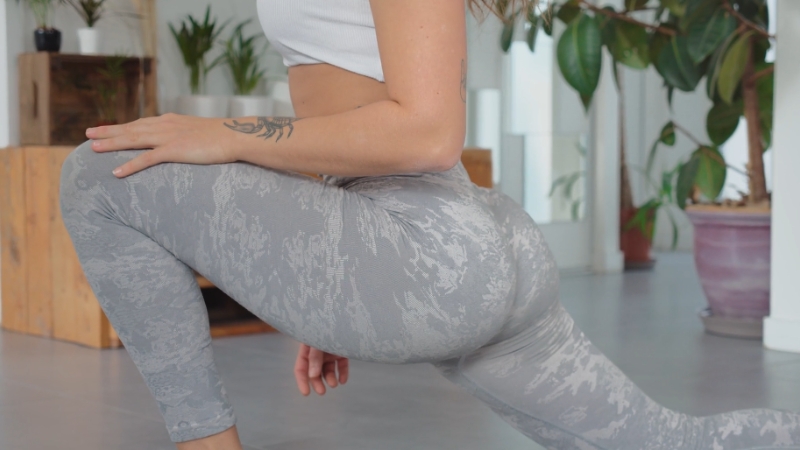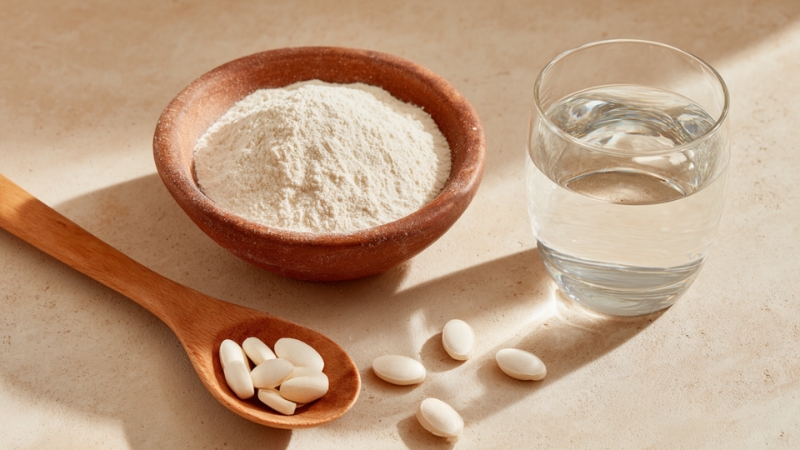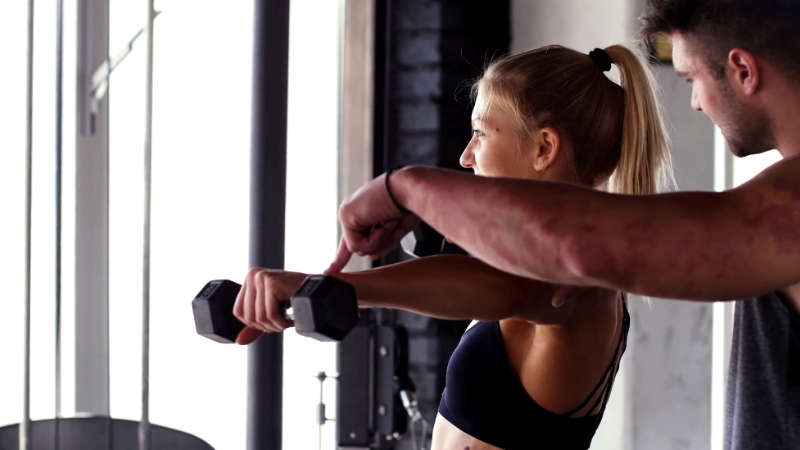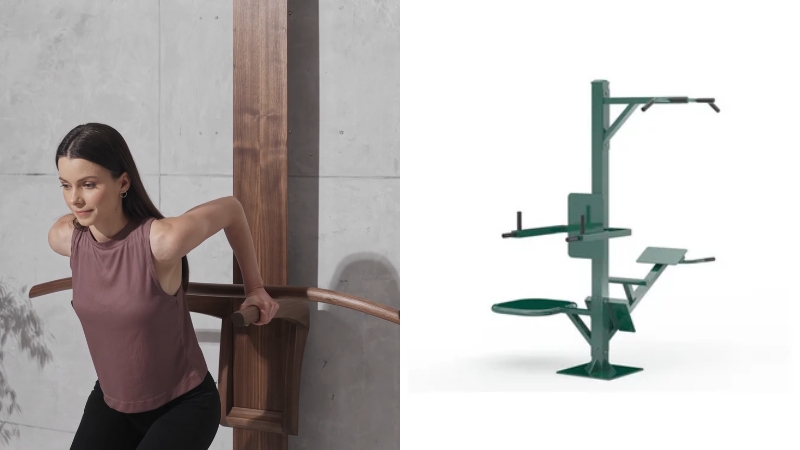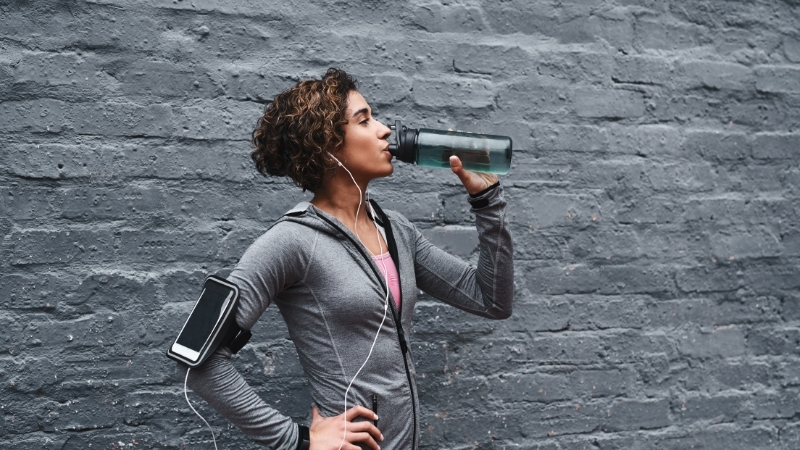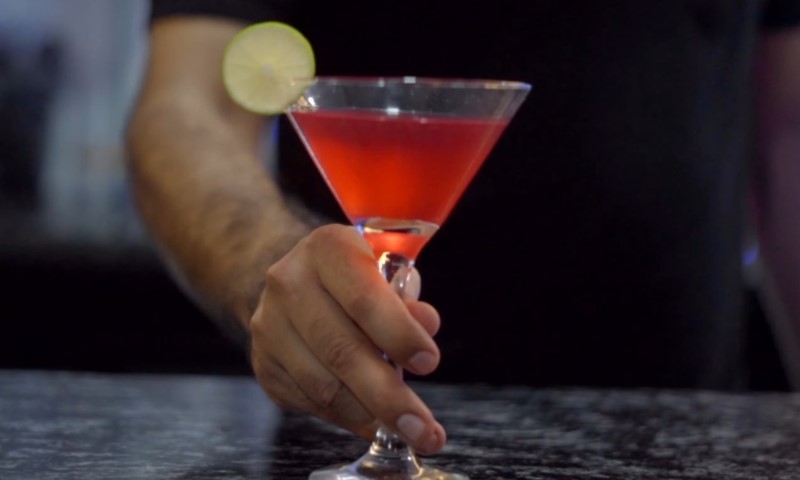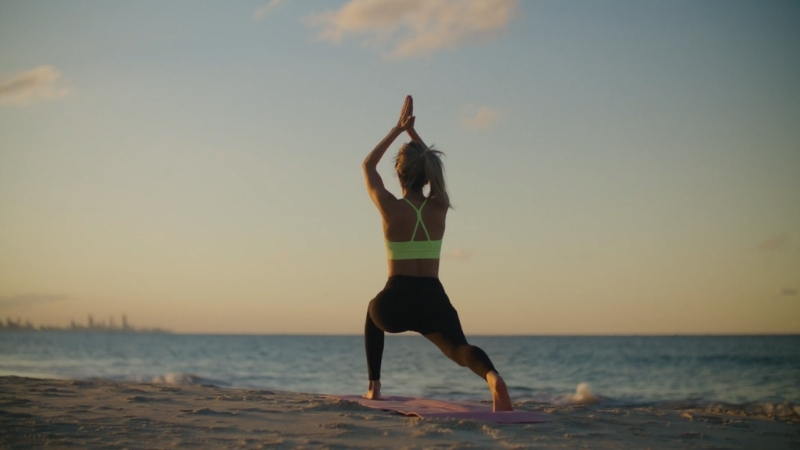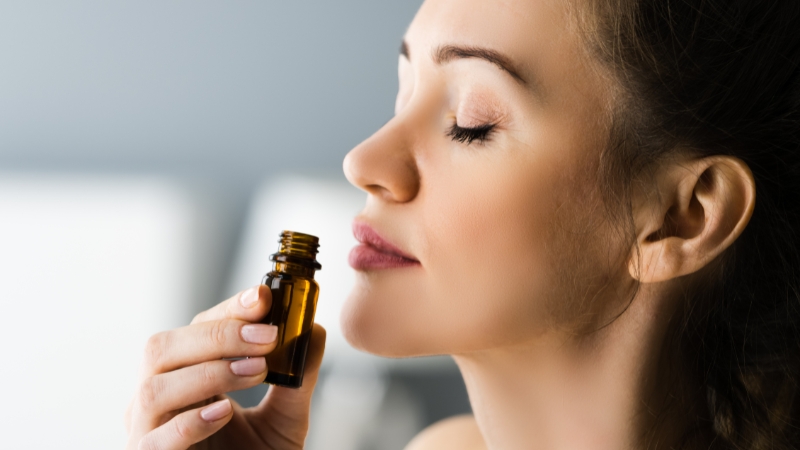
Share Post:
There’s something comforting about the scent of lavender on a stressful day or peppermint oil when a headache kicks in. For some, essential oils are part of a daily routine, tucked into diffusers, dabbed on temples, or mixed into bathwater.
For others, it all sounds like wellness fluff with little scientific weight. But in a world where the line between evidence-based treatment and trendy self-care often blurs, it’s fair to ask: Does aromatherapy actually work, or is it just a pleasant placebo wrapped in fancy packaging?
Let’s find out. The short answer is: aromatherapy isn’t magic, but it isn’t make-believe either.
Table of Contents
ToggleKey Points
- Aromatherapy may help with stress, mild pain, and sleep—but it’s not a medical treatment.
- Some oils (like lavender or tea tree) show promising effects, especially for menstrual pain or skin issues.
- Scientific support exists, but is limited; many studies are small and not highly rigorous.
- Essential oils must be used safely—never ingested, always diluted, and from trusted brands.
Aromatherapy In a Nutshell
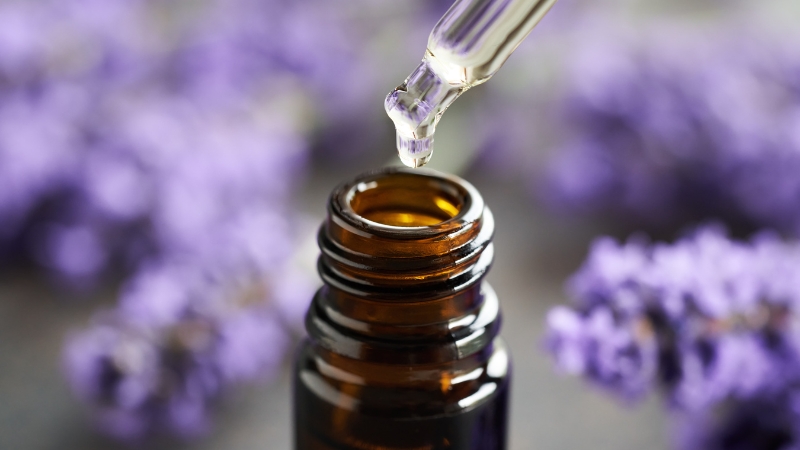
At its core, aromatherapy is the use of essential oils—concentrated plant extracts—for therapeutic purposes.
The practice dates back centuries, with roots in ancient Egypt, India, and China. But the modern version usually involves:
- Inhalation (via diffusers, steam, sprays)
- Topical application (diluted with a carrier oil)
- Occasionally baths or massage oils
Essential oils come from all parts of plants—leaves, seeds, roots, bark, and flowers. Think lavender, peppermint, eucalyptus, clary sage, lemon, tea tree.
The idea is that their scent molecules interact with your brain’s limbic system, which governs emotion, memory, and even some aspects of pain.
Some oils may also have physical effects—antimicrobial, anti-inflammatory, or analgesic—especially when applied topically.
How Popular Is Aromatherapy?
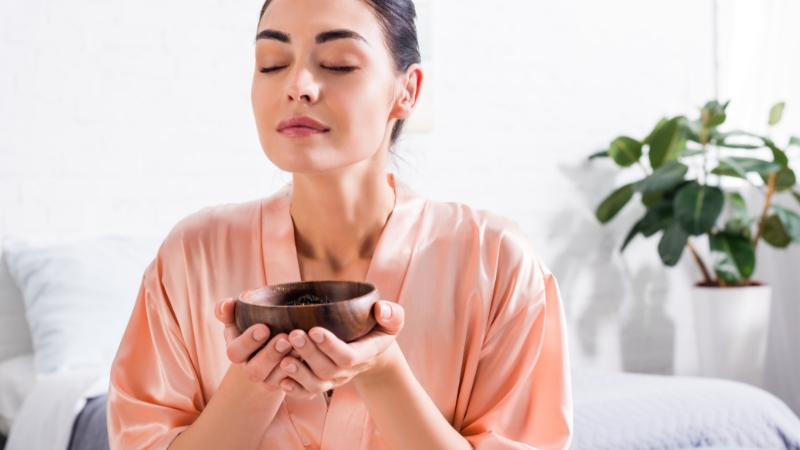
More than you might expect. According to PubMed Central research, in Australia, for instance, a 2019 survey found that over 11% of adults used aromatherapy oils, and nearly 4% had visited a professional aromatherapist.
Spending on these products topped 250 million AUD in just one year. And it’s not just stress relief people are seeking—aromatherapy is often used to address:
- Chronic pain (menstrual cramps, arthritis, headaches)
- Insomnia and other sleep issues
- Anxiety and depression
- Palliative care support for cancer patients
That kind of widespread use naturally raises the question—what does science say?
What the Research Tells Us (and Where It Falls Short)
The scientific literature on aromatherapy is surprisingly vast, but the strength of the evidence really depends on what you’re trying to treat.
Some conditions show moderate support; others, not so much. Let’s break it down by category.
Pain Relief
| Condition | Effectiveness | Confidence Level | Notes |
| Menstrual pain (dysmenorrhea) | Beneficial | Moderate | Lavender and clary sage oils show notable effects |
| Labor pain | Possibly helpful | Low to moderate | Lavender may reduce discomfort during childbirth |
| Post-tonsillectomy in children | Possible benefit | Limited | Some reports of less pain with lavender use |
| Needle stick pain (dialysis) | Some effect | Limited | Inhaled oils may reduce pain perception |
So far, the most consistent findings are for menstrual cramps. A 2019 report from the U.S. Department of Veterans Affairs concluded with moderate confidence that lavender and clary sage could reduce dysmenorrhea-related pain.
Other types of pain, like labor or post-surgical discomfort, show promising but inconsistent results.
Bottom line: Aromatherapy isn’t going to replace a painkiller, but it might take the edge off—especially for menstrual or mild procedural pain.
Stress and Anxiety
Beyond inhalers and topicals, newer formats like shower steamers (e.g., Soakmate.com) offer hands‑free scent delivery during your morning routine.
| Condition | Effectiveness | Confidence Level | Notes |
| Stress in healthy adults | Possibly helpful | Low to moderate | Lavender and lemon oil may calm the nervous system |
| Anxiety (before/after surgery) | Possibly helpful | Low to moderate | Lavender inhalation reduces anxiety for some |
| General anxiety or depression | Unclear | Limited | Mood may improve, but data is mixed |
The strongest data here comes from small trials involving surgical patients. Lavender appears to lower anxiety levels in some people before procedures.
It’s also frequently used in massage therapy for cancer patients or people with chronic illness, often as part of palliative care.
The National Center for Complementary and Integrative Health (NCCIH) notes a study where lemon oil improved mood but didn’t change stress hormone levels—meaning people felt better, but it wasn’t reflected in their physiology.
Takeaway: Aromatherapy may help create a calmer environment and ease psychological tension, but it’s unlikely to completely resolve clinical anxiety or depression.
Sleep Support – A Little Help, but Not a Cure for Insomnia
| Condition | Effectiveness | Confidence Level | Notes |
| General sleep improvement | Possibly helpful | Low to moderate | Lavender helps some people sleep better, esp. in hospitals |
| Clinical insomnia | Inconclusive | Low | Research isn’t strong enough to confirm benefits |
Small studies have shown lavender helping hospitalized patients fall asleep more easily, and even improving the quality of their sleep. That said, large, controlled trials on chronic insomnia are lacking.
If your sleep struggles are tied to stress or pain, essential oils might help as part of a broader strategy—alongside good sleep hygiene, reduced screen time, and maybe some chamomile tea.
Blood Pressure, Athlete’s Foot, and More
It’s not just mood and pain. Some surprising effects have cropped up in other research:
- Hypertension: Lavender and ylang-ylang may lower blood pressure slightly, especially in stressed individuals.
- Tea Tree Oil for Tinea Pedis: Multiple studies show tea tree oil can help treat athlete’s foot thanks to its antifungal properties.
- Dialysis Patients: Aromatherapy has shown potential for improving stress, sleep, and mood in people undergoing hemodialysis—who often experience poor sleep and emotional strain.
While encouraging, these findings aren’t quite strong enough to recommend aromatherapy as a primary treatment—but they do show that the oils can do more than just smell good.
What’s Still Unproven?
A review from the Australian government, which assessed research mainly published before 2012, concluded that there was “no clear evidence” that aromatherapy works.
That might sound harsh, but it reflects the state of the data at the time. Since then, research volume has grown. A bibliometric analysis showed that nearly 200 new studies were published between 2012 and 2014 alone.
Still, the field has a ways to go. Many studies are:
- Small
- Not blinded (participants know they’re using oils)
- Based on subjective reporting
- Short-term
Until more high-quality, double-blind, placebo-controlled trials are done, aromatherapy will likely remain in the “complementary but not conclusive” category.
How Does It Actually Work?
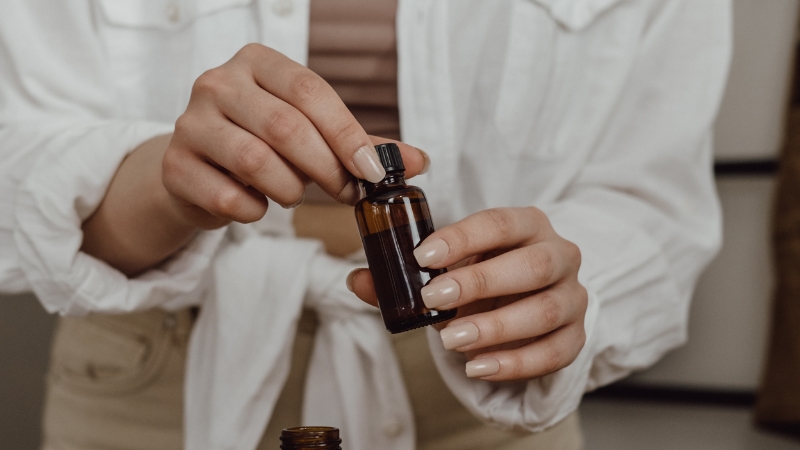
Scent and the Brain
When you inhale essential oils, their molecules travel through your nose and stimulate olfactory receptors.
These send messages straight to the limbic system, the emotional control center of the brain. That’s why certain smells can instantly bring up memories or shift your mood.
For example:
- Lavender → relaxation, potentially lowers heart rate
- Peppermint → alertness and reduced nausea
- Lemon → increased serotonin activity, mild mood lift
Direct Physical Effects
Some essential oils—tea tree, eucalyptus, oregano—may have antimicrobial or anti-inflammatory effects. Lab studies even suggest that certain oils kill bacteria, viruses, or fungi.
One Johns Hopkins lab study found essential oils performed better than antibiotics against Lyme bacteria in vitro. That doesn’t mean they’ll do the same in your body, but it’s an exciting lead.
Topically, some oils reduce redness or swelling. But always dilute them properly—undiluted oils can be harsh or even toxic on the skin.
Important Safety Notes
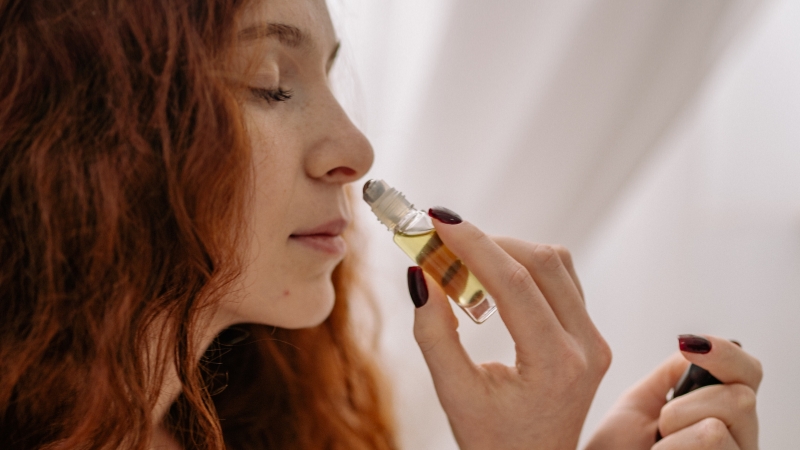
A few key things to keep in mind:
Quality Varies Wildly
Essential oils are not regulated like drugs. Two bottles labeled “lavender” may contain completely different concentrations, added chemicals, or even synthetic fragrances.
Stick to reputable brands that provide full ingredient lists and third-party testing when possible.
Skin Reactions Are Common
Especially with:
- Citrus oils (bergamot, lemon) → cause sun sensitivity
- Cinnamon bark, oregano, ylang-ylang → may cause burns or allergic reactions
Always dilute with a carrier oil like jojoba or coconut before applying to the skin.
Inhalation Isn’t for Everyone
Asthma sufferers or people with scent sensitivities may react poorly to diffused oils. It’s always best to test in small doses and avoid confined spaces.
Don’t Swallow Oils
Some influencers and DIY wellness accounts promote internal use, but experts—including the International Aromatherapy and Aromatic Medicine Association—strongly advise against ingesting essential oils. Even a few drops can be toxic.
Special Populations
If you’re pregnant, nursing, or have a chronic medical condition, check with a healthcare provider first. Research is limited for these groups.
Real Tool or Wellness Myth?
@abcgma3 Does #aromatherapy have health benefits? @drjashton ♬ original sound – GMA3
So, is aromatherapy backed by science?
The honest answer is: it depends. For certain conditions, like menstrual pain, mild anxiety, or sleep disturbances, there’s a growing pile of small but promising studies suggesting it may help.
But it’s not a substitute for medical treatment, and the research still needs more depth and rigor.
Here’s a realistic way to think about it:
| Role | Aromatherapy’s Potential |
| Pain relief | Helpful as a complement, not a replacement |
| Anxiety/stress | Can create a calming environment |
| Sleep | May support better rest, especially when linked to relaxation |
| Physical health (fungal, skin) | Tea tree and others show promise topically |
| Overall mood/lifestyle | Likely beneficial when used safely and consistently |
It’s not a miracle cure—but it can be a meaningful part of your self-care routine.
Final Thoughts
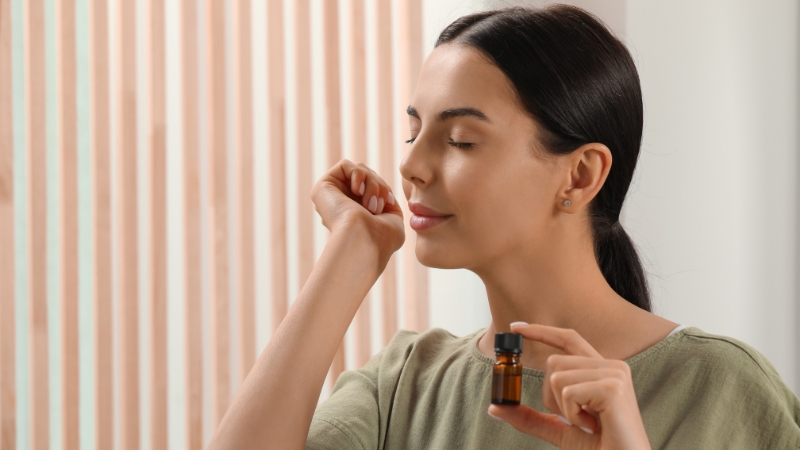
If you feel better after using essential oils, that’s worth something, even if the science is still catching up. Placebo or not, the act of caring for yourself, setting an intention, or simply pausing to breathe can be healing in its own right.
Just be smart about it:
- Choose high-quality oils
- Use them safely (diluted, not ingested)
- Pair them with evidence-based care
And maybe don’t throw out your pain meds just yet—but there’s nothing wrong with reaching for that lavender rollerball after a long day.
Related Posts:
- Is Drinking Raw Eggs a Myth or a True Muscle…
- Strength Training for Women - Busting the Bulky Muscle Myth
- Does Protein Powder Expire or Just Lose Potency?
- Does Throwing Up Make You Lose Weight or Just Cause Harm?
- Does Weight Lifting Make Breasts Sag or Support Them Better?
- 6 Best Methods For Inflammation Reduction Backed By Science


